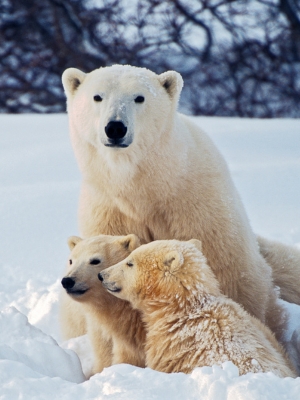Week after week of triple digit temperatures and less than one quarter of an inch of rain has left the entire area dry and dusty and it’s suddenly easy to visualize how deserts are formed. Fortunately our wells are still operating and the monkeys have become conditioned to the hotter weather and are all but finished with their seasonal molt.
[teaserbreak]
We recently welcomed two new placements to the sanctuary: Tamae is an 8-year-old female snow monkey and Khy is a 2-year-old male snow monkey. Unlike many rescues where the animals are kept in deplorable conditions, these two were well cared for by loving families who came to the conclusion that it was time for their charges to have an opportunity to live life as a real monkey.
Tamae is slowly becoming used to her new surroundings and though she hasn’t bonded with another monkey yet she is becoming more interested in the others as each day passes. It can be a difficult process for those kept as pets to transition from human companionship to that of monkeys. Humans are a poor substitute for monkey mothers and the learning opportunities provided for within the social structure of a troop, so a tremendous amount of information has to be absorbed and new communication skills learned. Fortunately, with time and opportunity they eventually make the transition.
Khy, being much younger, is adapting very quickly. Of course he’s small so we’ve modified a large cage to allow limited contact with other monkeys but which keeps him safe and he’s now staying outside all of the time. He has an incredible amount of energy and curiosity and within the last few days has been visited by a number of snow monkeys. One in particular has started staying with him for long stretches of time. I glanced up and saw Khy reach his small fingers out to groom the face of the other snow monkey who obligingly shifted position to make it easier on the little one. The grin on my face stayed there all day. It’s truly rewarding to witness those moments when another life makes contact with their true identity.
We had the good fortune to spend two weeks in the company of Dr. Linda Wolfe, primatologist and chair of the anthropology department at East Carolina University. Linda did her dissertation on the original snow monkey troops back in the 1970s and visits routinely to continue her observations of the descendants. You think you know quite a bit about a species and then you spend some time with someone like Dr. Wolfe and you quickly realize how much more there is to learn. It’s rare to have an opportunity to learn at the hands of an expert, and staff and interns from Wildlife Rescue took advantage and attended two informal sessions with Dr. Wolfe. We’re already looking forward to her return next spring.
If you haven’t already done so please take a moment and put a banana on our banana tree!
Until next time,
Tim

 Dear Reader,
Dear Reader,